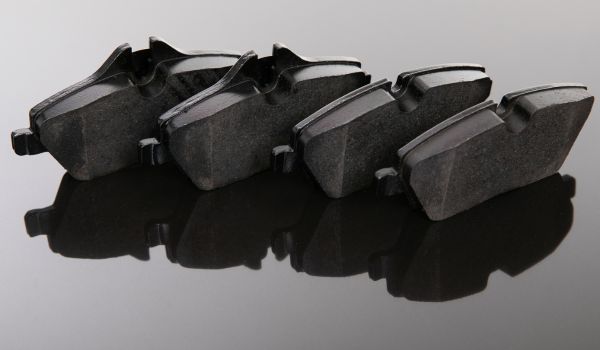WHAT’S MAKING MY CAR LEAK BRAKE FLUID? is an important query among people and here is the answer,
The brake system is one of the most important part of your car when it comes to safety. The hydraulic system needs to have brake fluid so that your car can stop when it needs to.
The brake system could develop a fluid leak, though. The small ones could not cost anything to fix. Or they could be very big and cost more than $1,000 to fix. Find out more about what brake fluid does. How to improve and stop leaks, and the signs and reasons for a leak.
HOW IMPORTANT IT IS TO UNDERSTAND BRAKE FLUID
Your car’s brake system makes hydraulic pressure in the brake lines when you step on the brake pedal. These lines send a force to the brake calipers or wheel cylinders. Which then press the brake pads or shoes against the rotors or drums. This friction is what slows down and stops your car in the end. The brake fluid makes sure that the force from your foot works well with the brakes.
Without brake fluid’s ability to compress, your brake pedal would feel soft. And your car would not be able to stop as well. For safe stopping, brake fluid must be able to transfer force quickly and evenly.
In terms of what they do, each type of brake fluid is different. Most of the time, use DOT 3 and DOT 4. Most cars use DOT 3 brake fluid. Which is made from glycol. Because it has a lower boiling point, it can be used for daily driving. DOT 4 brake fluid is also made from glycol, but it has a higher boiling point, which makes it perfect for speedy and heavy-duty cars. There’s also DOT 5, which is made of rubber and is used less often.
To make sure your brakes work right, you must use the type of brake fluid that the maker of your car recommends. If you use the wrong kind, you might have problems like less stopping power or even a leak.
SIGNS OF CAR LEAK BRAKE FLUID
Finding leaks in the brake fluid is an important part of keeping the brake system safe and working well. Please be aware of the following signs:
Puddles or marks
If you look under your car and see a puddle or spots that are clear or slightly yellow, it could mean that brake fluid is leaking. Because brake fluid is not like other car fluids, its unique color can help you figure out what’s wrong.
Feels soft or spongy
If the brake pedal is soft and squishy and goes all the way to the floor, it’s clear that brake fluid is leaking. It happens when air gets into the brake lines because brake fluid is being lost.
The brake warning light that is on
These days, cars have warning lights on the dashboard. If your brake warning light comes on, you need to have your brake system checked out right away because it could mean that brake fluid is leaking.
Less effective stopping power
You may need more brake fluid if your brakes work better than they used to and take longer to stop or respond to your input.
It is very dangerous to ignore the signs that your brake fluid is leaking. Not only is brake fluid important for stopping your car, but it also keeps the brake system from rusting. Leaks can cause a lot of problems. Such as costly repairs, corrosion inside the system, and dangerous driving conditions. If they are not fixed.
WHAT LEADS TO CAR LEAK BRAKE FLUID
Your car’s brake system depends on brake lines, which carry brake fluid from the master cylinder to the brake calipers or wheel cylinders. These lines can rust or get worn down over time. Corrosion can happen when you’re near salt or other acidic substances on the road, and wear and tear can happen as you age.
Check your brake lines
Check your brake lines often, paying extra attention to places where they might be hit by road debris or get wet. Keeping brake fluid from leaking, rusting, or damage that can be seen is a clear sign that it’s time for a repair.
Brake Master Cylinder
The brake master cylinder is the most important part of the brake system because it makes the hydraulic pressure that stops the car. It is the calipers’ job to press the brake pads against the wheels, which creates the friction that stops your car. There could be brake fluid leaking if either of these parts gets broken or starts to leak.
It is important to check the master cylinder and calipers on a regular basis. If you see wet or sticky spots around these parts, that means there is a leak. Any signs of damage or leaks should be fixed right away to stop problems from getting worse.
Hot Brake Fluid
When brake fluid gets too hot and boils, it can also leak. When brake fluid gets hot enough, it can turn into vapor, which can make air bubbles in the brake lines. This air can make the brake pedal feel soft and weaken the stopping power.
When you have to brake hard, like when going downhill or pulling big loads, the brake fluid can get too hot. This problem might not happen if you use brake fluid with a higher boiling point, like DOT 4. It’s also important to change your brake fluid often since old, dirty fluid that’s full of water is more likely to boil.
DO IT YOURSELF VS. PROFESSIONAL INSPECTION AND REPAIR
By checking your brake fluid often, you can find problems before they get worse. When it’s okay for you to check your brake fluid:
Visual inspection
You can look at the brake fluid tank, which is usually in the engine bay near the firewall. Check the amount of the fluid; it should be in the range that is marked. Look at the color of the fluid as well. It shouldn’t be dark or cloudy; it should be clear or slightly yellow.
Brake pedal feel
If the way your brake pedal feels changes like if you need to put more or less pressure on it, it could mean that brake fluid is leaking.
Some parts of brake system maintenance should only be done by pros, even though do-it-yourself inspections are helpful. This is why:
- Professional mechanics have special tools and equipment that help them correctly find and fix problems with brake systems.
- Trained mechanics can do a full check that can find not only leaks in the brake fluid but also other problems that could be happening with the brake system.
- Professional mechanics have the skills and information to make sure your brakes are in great shape, which lowers the risk of accidents.
- Some parts of the brake system come with warranties that might not cover you if you try to fix them yourself. Professional service makes sure that your warranties are still good.
- There are strict safety rules that brake devices must follow. Professional experts will make sure that your car follows these rules.
HOW TO KEEP BRAKE FLUID FROM LEAKING
Regular care and repair are the best ways to stop brake fluid leaks. To keep your brakes in great shape, follow these tips:
- Follow the manufacturer’s advice about how often to change the brake fluid. This keeps the fluid from getting old and dirty, which lowers the risk of it burning and leaking.
- Check your brake lines often for rust or signs of normal wear and tear. Replace broken lines right away.
- Watch out for any leaks or damage in your brake master cylinder and calipers.
- When towing or going on hilly terrain, use engine braking and downshifting to lighten the load on your brakes and keep the fluid from getting too hot.
- Always use the brake fluid that comes with your car according to the owner’s manual to make sure it works right.
CAR LEAK BRAKE FLUID – Conclusion
To keep your brakes working well, you need to know how important brake fluid is, how to spot signs of leaks, and how to stop them from happening. By following these tips, you can make sure that the brakes on your car work properly and keep you and other people on the road safe.








